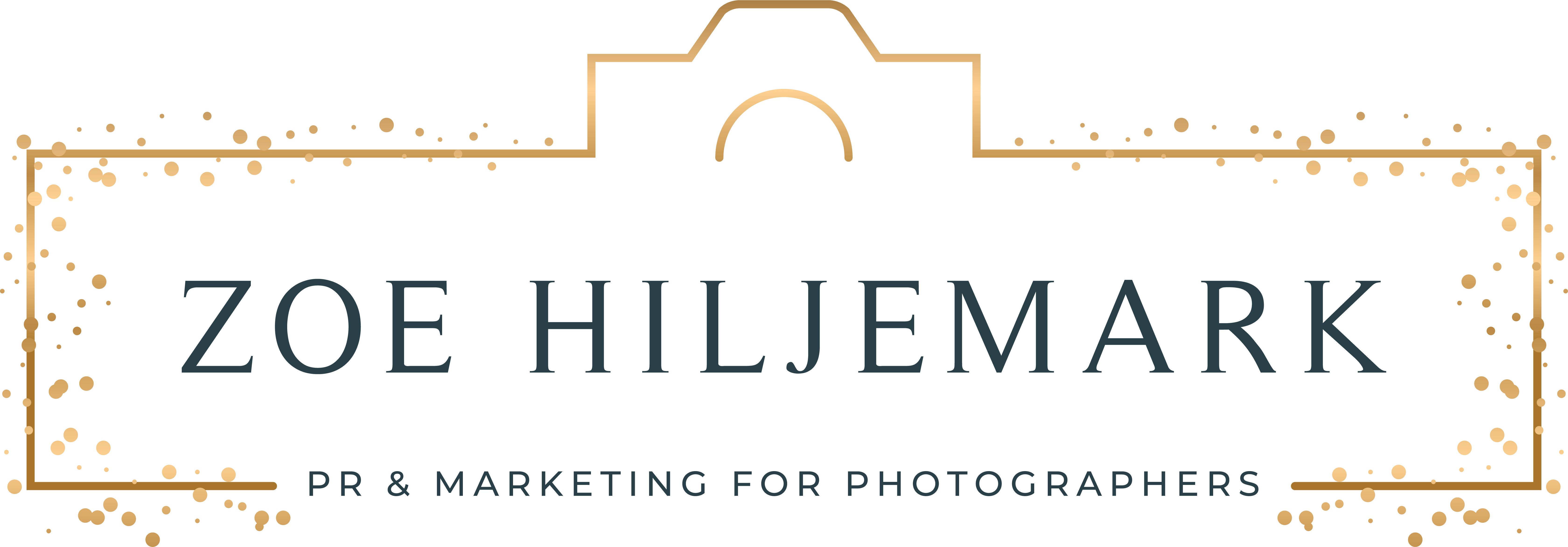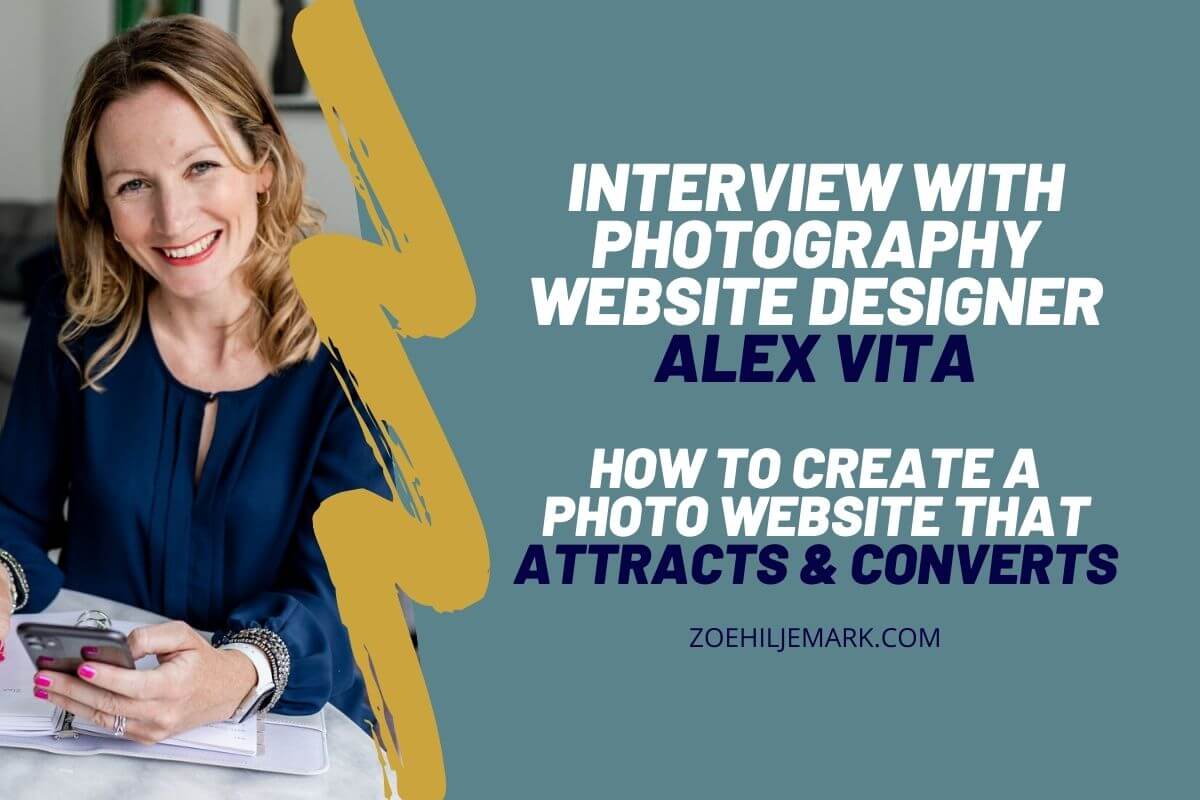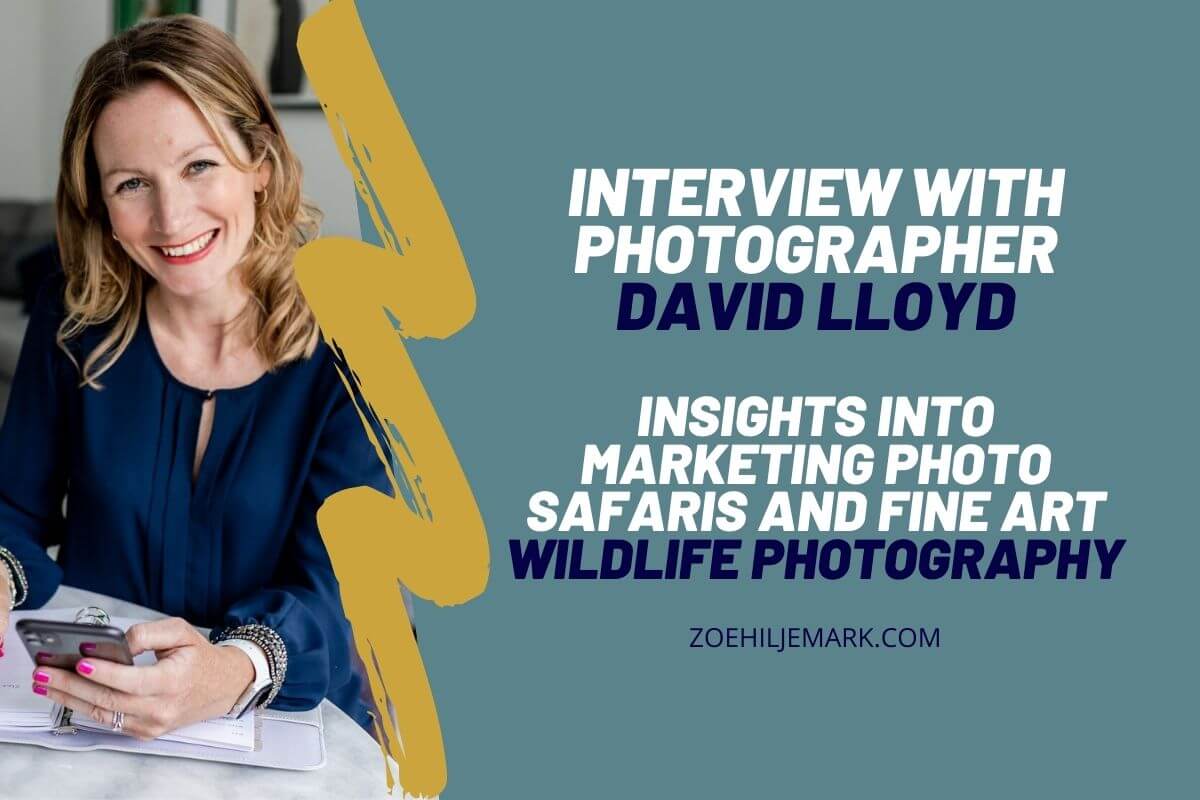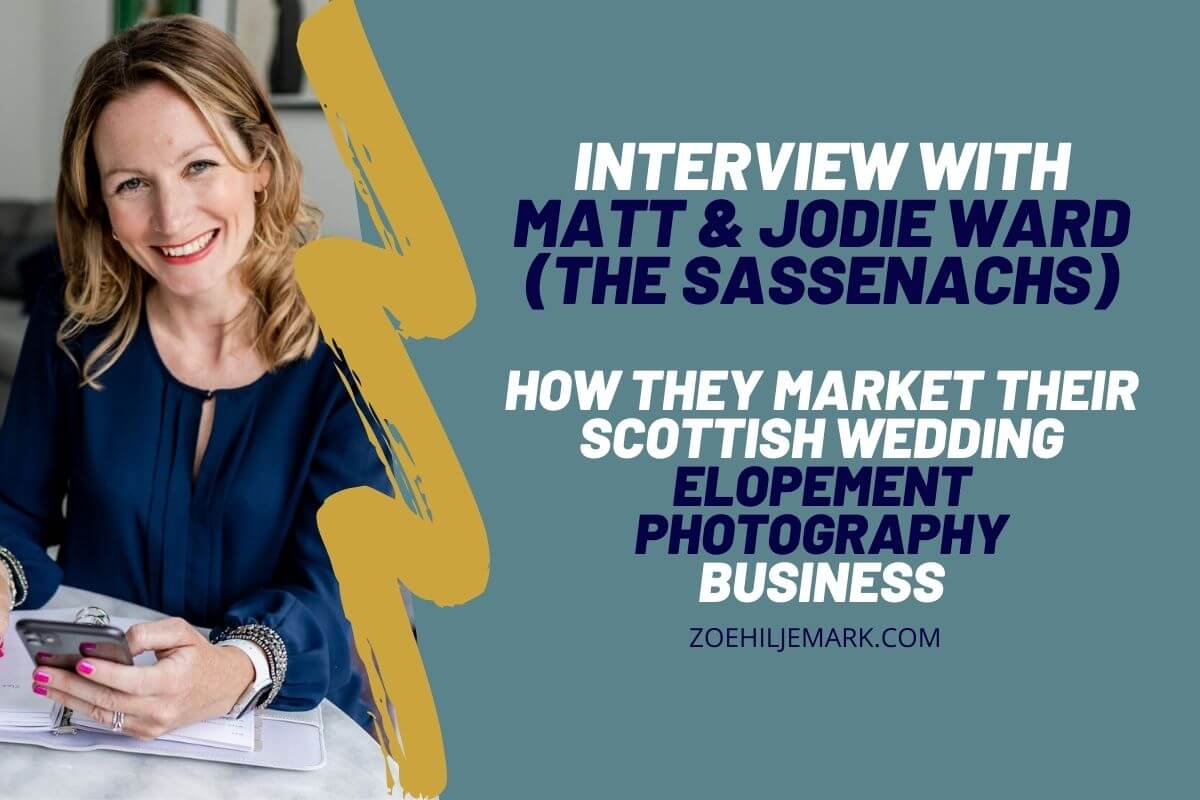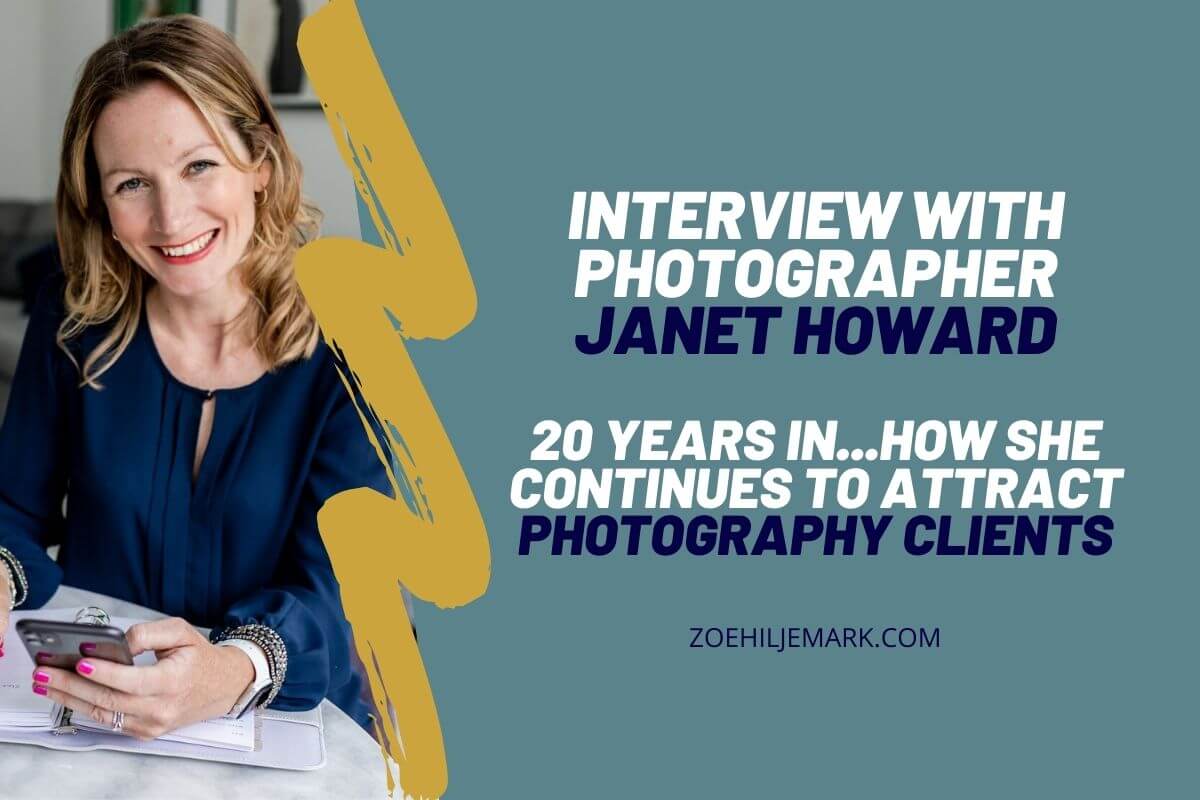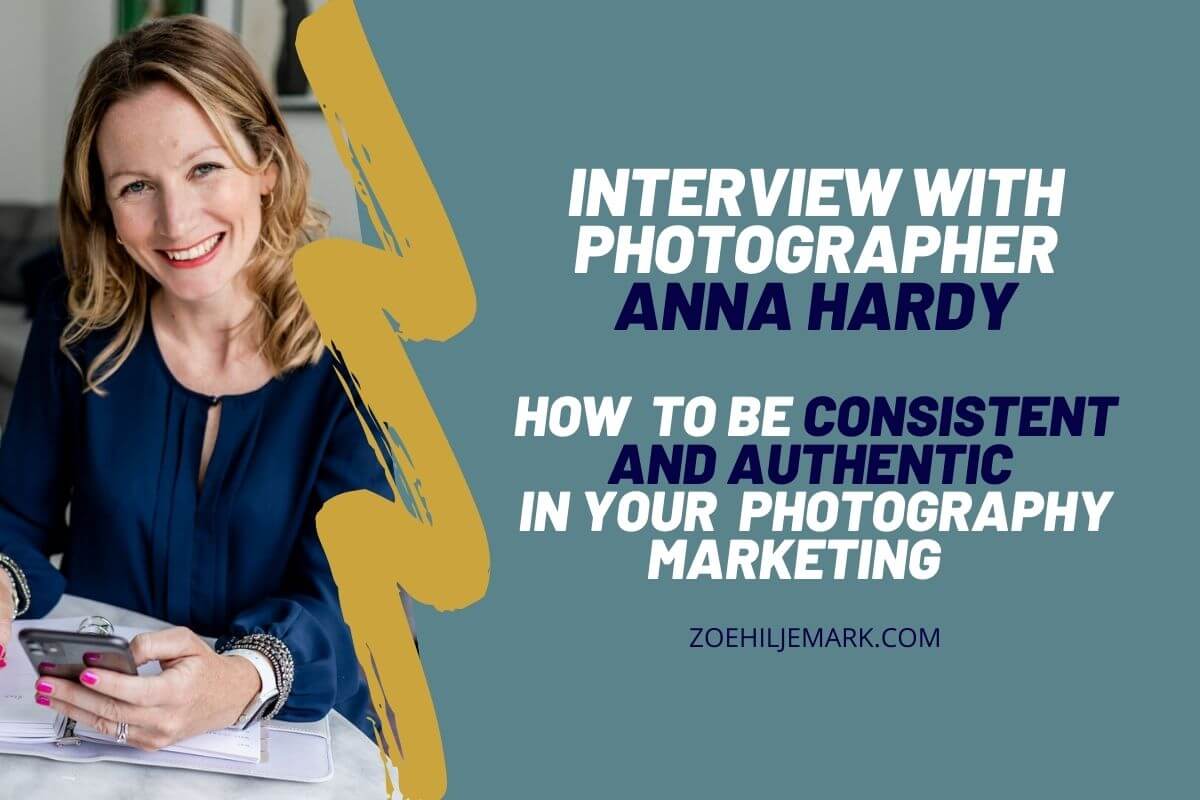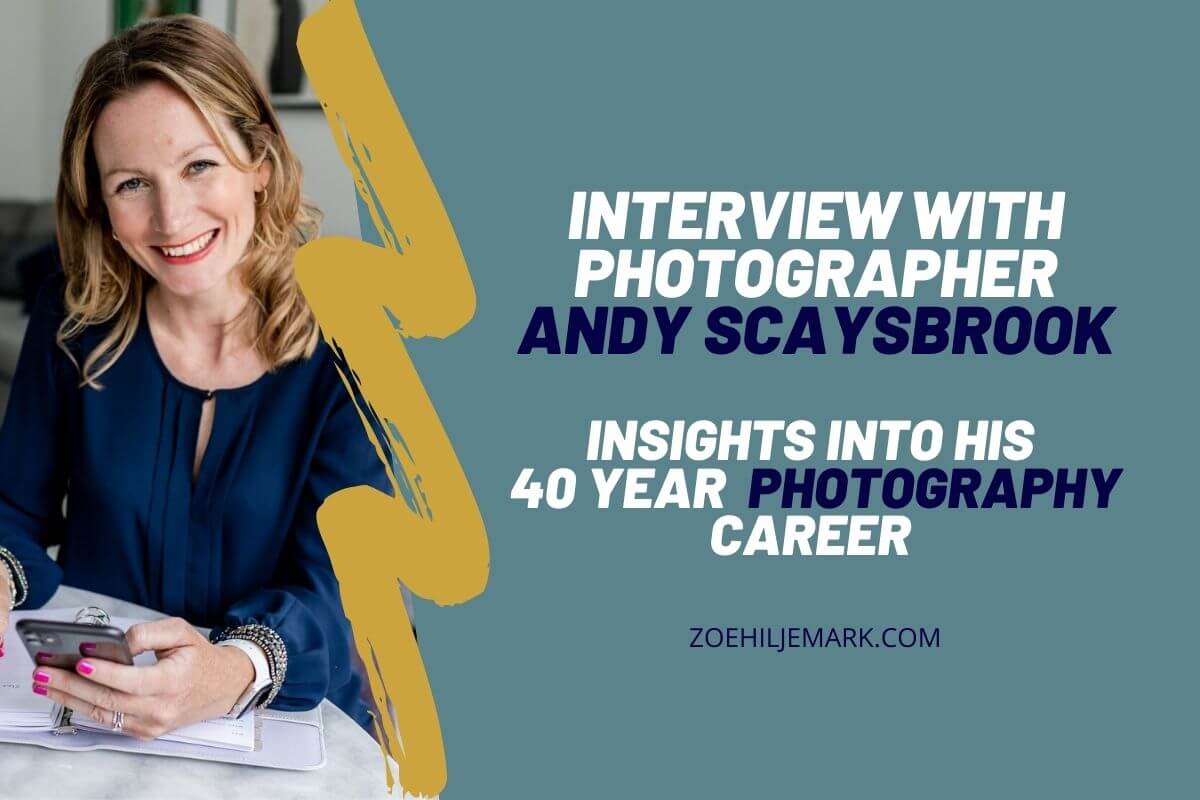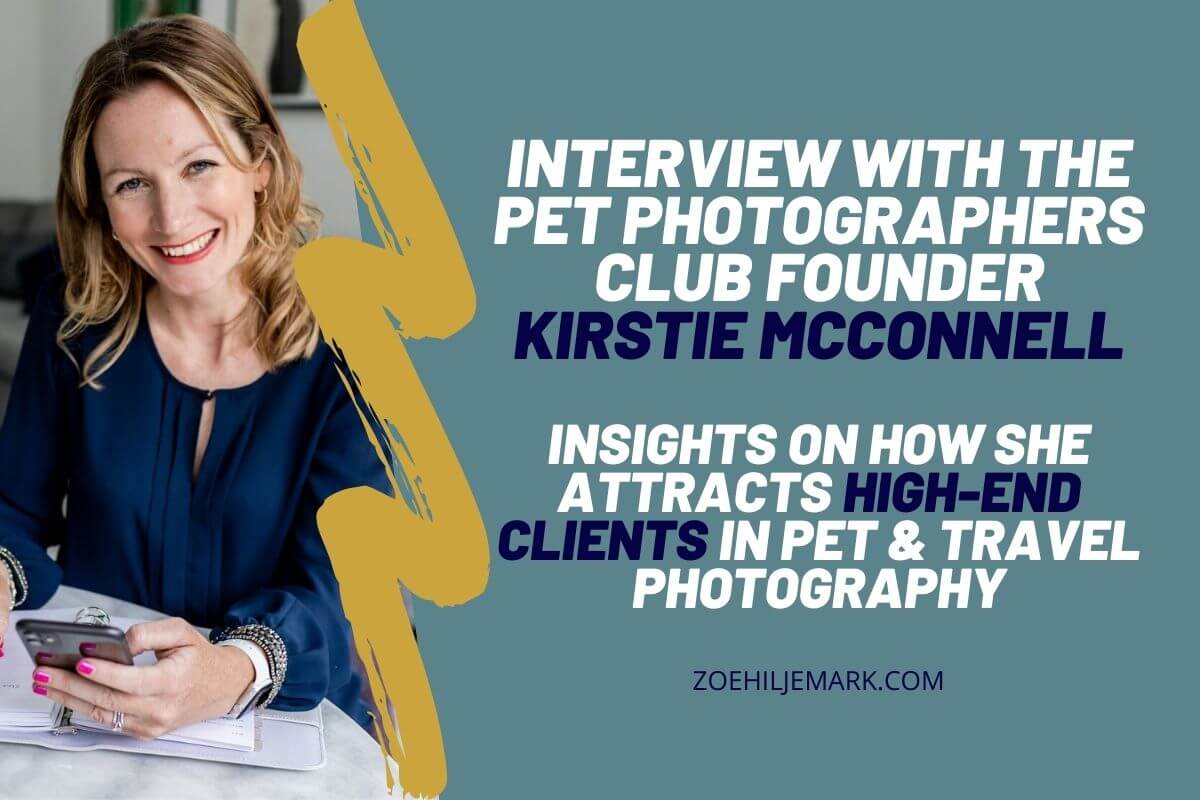Interview with Alex Vita: How to Build a Photography Website That Converts Clients
Your website is your digital storefront—so is it working for you or against you? In my latest interview, I had the pleasure of speaking with Alex Vita, a website designer and developer who specialises in creating high-performing photography websites.
With over a decade of experience, Alex has helped more than two hundred photographers located in 25 different countries refine their online presence.
Click this link or on the video preview below to listen to or watch my recent chat with Alex about how to create a photography website that converts clients. Alternatively, you can scroll down to read the full transcript.
Introducing Alex Vita
Alex is the founder of ForegroundWeb. He helps photographers establish a compelling online presence that effectively showcases their work and converts clients.
Alex offers a range of services, including custom website design, SEO optimisation, and consulting. His clients include professional and semi-professional photographers seeking to sell prints, offer workshops, or promote photo tours.
Why your photography website matters more than ever
During the conversation, Alex and I discussed how in today’s competitive photography industry, having a beautifully designed website isn’t enough. He emphasised that your photography website needs to be strategically built to attract, engage, and convert visitors into paying clients.
In this exclusive interview, Alex shares with me his insights on:
- The biggest website mistakes photographers make (and how to fix them)
- The latest website design trends for 2025
- How Alex predicts AI will change photography websites
- Simple quick wins you can implement today to boost your site’s performance
A photography website that converts clients
Alex emphasises that many photographers make the mistake of prioritising aesthetics over functionality.
He puts forward the case for why a sleek aesthetically pleasing photography website won’t help if it lacks clear navigation, calls-to-action, or an SEO strategy. He also highlights the importance of showcasing your best work strategically, rather than overloading your site with too many images.
He also highlights the importance of user experience (UX). Fast-loading pages, mobile responsiveness, and clear site structure all play a huge role in getting your website to rank higher on Google.
Related: Photography Websites Best Practice
Watch the interview and subscribe for more
Catch the interview with Alex Vita here on my YouTube channel or click on the video below.(If you enjoy it, please like, comment and subscribe while you’re there). Alternatively, you can read the transcript below if you’d prefer.
Thanks must go to Alex for all the great insights he shared during our chat about how to develop a photography website that converts clients. I found his predictions for the future of photography websites and marketing fascinating, and I hope you will enjoy tuning in!
LINKS & FURTHER INFORMATION
Video Transcript
Zoe: I’m really excited to be interviewing in this series a number of marketing experts all who work with photographers. And first up, I’m delighted to introduce Alex Vita, who is a photography website designer and developer. Alex joins me from Romania and he has so much experience creating photography websites.
I think on your website, Alex, you said 200 odd websites you’ve created for photographers across 25 different countries in the world. So welcome and we look forward to hearing more about that.
Alex Vita: Hi Zoe. Thanks so much for having me. Yeah, I’ve been working with photographers exclusively for almost 20 years. This has been my professional life so far. I’m almost 40 now, 39, but right after I finished college, I studied computer science, but I didn’t want an IT office job. I wanted to be a freelance photographer. And I kind of did that for a few years. I struggled with it. I tried to, you know, make ends meet and shoot weddings and family events and headshots. But my technical background kind of caught up to me and I started building websites. It snowballed from there. I’ve been doing that ever since.
Zoe: Yeah, that’s so interesting. We’ve known each other for a while and I didn’t actually realize you had been a photographer in a previous life. So I guess with what you do now, it’s so technical, isn’t it? And I guess creative. But creative in a different way to what it would require as an actual photographer.
How did that work for you, combining your computer science background and clearly all that technical knowledge with the creative artistic side of the photography. And, you mentioned weddings. Was that the genre you specialised in? Tell us a bit more about what you used to do as a photographer.
Alex Vita: I didn’t yet specialize in anything. I was still a beginner. I tried a bunch of stuff. I tried stock photography and weddings, events, headshots. I had my own studio at home. I didn’t get too far, but just enough to taste the struggles. A bit of a photographer of getting clients, of marketing yourself, putting your work online, all of that.
Zoe: Super valuable insight then for what you do now, obviously.
Alex Vita: I think so. Just to understand the nuance and the psychology behind, you know, working with photographers, not just technical stuff. Back to your question about creativity…I think you do need a mix of both.
I think just as photographers do as well. It’s both an art and a science. They both need to do composition and have that creative eye, but they also need to run a business and do marketing and sales and invoicing. That’s the technical part of their brain and everyone’s on that spectrum, so to speak.
I don’t think what I do is that different. I use my technical skills for building and setting things up, all of that, SEO. But the creativity is just like in photography. You can think of a website design as a snapshot of a photograph. You need composition alignment between elements. You need symmetry or asymmetry, all that stuff.
Zoe: Yeah, that’s a good point and very interesting to think of it like that actually, because yes, ultimately the website that a photographer has is the gateway into their business, isn’t it? And of course, photographers are very particular about how they present themselves online as so they should be.
But you work with photographers who are already established as well as aspiring photographers, helping them build that brand and presence online, to help them attract clients. So what do you think is most appealing to photography clients when it comes to the website in terms of that visual appeal?
Would you recommend a more minimalist look or does it depend on the genre and the individual photographer?
Alex Vita: It does depend. One thing, the first idea that came to mind is the website should not be pretty and look good for them as the photographer. ’cause that’s often not the best website for their target audience.
Yeah. So that’s why, you know, they try, they work with a skilled web designer to, to do that better. So what’s good for a website? What’s effective for a website? And it, it, it’s a loaded question and I obviously get that a lot. I like to start with a kind of an anti definition a good website.
Is not a beautiful web website necessarily. It’s not a website that has a pretty logo or a ton of SEO-heavy pages, not even a website with awesome photos. Obviously, that’s key and it’s a great multiplier of any good website. But a good website is simply one that’s. converts people. That gets you results, enquiries, and sales.
Yeah. And how to get that. It’s not about a fancy design or the, the branding necessarily. All of those help. It’s more about having the sort of high-level picture of the funnel from their audience down to the final sale. Bringing people more traffic to the website through marketing, which you obviously, know very well.
Alex Vita: SEO. Social media, marketing, content marketing, all of that. Paid traffic…
Zoe: PR.
Alex Vita: PR, of course. Yeah. I put that under the umbrella of marketing…
Zoe: Yes, it is under the umbrella. You’re right.
Alex Vita: Yeah. And then once that traffic lands on the website, converting them, I. Through, you know, copywriting, call to action pricing, addressing pricing, user experience. And then finally, once you do get the inquiry sales, negotiating pricing again, all of that.
Zoe: Gosh, when you list it out like that, it’s no wonder photographers get overwhelmed with this whole thing of photography. Marketing is, it is such a lot, isn’t it?
Alex Vita: But you need all of those components to make an exceptional website. It’s not just one thing.
Zoe: Yeah, it’s not as simple as we’d probably like it to be.
Alex Vita: No, no. If it were simple, anyone would just spawn websites left and right and it’s not that.
Zoe: Yeah, absolutely. Yeah. And I find myself saying that as well, like when it comes to content for marketing. If it was easy, you know, we would all be winning. And I know a lot of people are not, and the reason is it’s because they’re not creating high-quality content that’s genuinely unique, that’s genuinely resonating with their audience, that isn’t just a copy of somebody else’s approach.
And I guess it’s the same for websites really, because it’s got to reflect you and your branding, but as you said quite clearly, it’s gotta be about not with the kind of style and design that you want necessarily as the photographer, but what’s gonna appeal to your clientele.
As part of your work with photographers, presumably you then help them to navigate that and understand what their clients might want. I mean, some people might come to you, I’m guessing, with absolutely no clue on how they can make an attractive website for their client base, or do you help them further down the line when they come to you with that clear idea?
Alex Vita: Both. It depends on the stage of their business. Or the level of experience beginners semi-pros or established pro photographers who already have not just good positioning, but already a service ladder, and multiple pricing tiers for different types of audiences. So it really depends.
But, yeah, some strategising is involved sometimes like in consulting calls. We don’t talk about the website that much sometimes, but more about what their service offering is and how to attract more clients. Other times they’re set. They just need tactics and tips.
Zoe: So what would you say are like three essential components of an effective website in terms of attracting and converting clients? In your opinion, what’s needed for a photography website to convert clients?
Alex Vita: So back to that funnel idea, attracting and converting, I put them in different buckets.
Zoe: Mm-hmm.
Alex Vita: But yeah, attracting marketing avenues, all of those obviously converting is something more complicated. How to convert whatever traffic photographers are getting, how to convert those into sales and inquiries. Conversions usually come down to user experience, to how a website avoids confusing stuff or annoyances of that sort, or positions the photographer as an expert, so they trust them. It’s harder to review and to audit. Conversions…when I do audits for photographers I do run kind of my own internal checklist. I look for call-to-action buttons on the website, how good they are, how clear they are, and if there’s a flow through the website down to the contact page. You know how prominent they are. How. Easy to find is the contact information. It’s often missing or lacking.
Zoe: And the location. So many photographers don’t mention where they’re based. Yes. Which for some isn’t important ’cause people say, oh, I travel everywhere. But gosh so many people make that mistake, don’t they? And therefore they’re missing out on the SEO benefits of actually mentioning their location, but also people are just scrambling around on the site trying to find out where they’re from…
Alex Vita: Exactly.
Zoe: Or are they, you know, maybe they’re clicking off quickly because they get frustrated.
Alex Vita: Yeah, yeah. Most photographers offer local services and they’re not doing that properly. Back to conversions, like anything that’s confusing. A weird navigation menu. Unfamiliar positioning of the logo, of the navigation menu. Stuff that simply stops people in their tracks. They don’t understand how to browse the website. Annoyances, popups, splash pages. Yeah. All that sort of stuff. Trust elements like testimonials, logos, how the e-commerce process is, and how the search functionality is for some websites. All those small factors.
Zoe: Mm-hmm. Of which there are so many. Yeah. I think your point about call to actions, you know, I see that myself as well. They’re either hidden or they’re, not making use of buttons and the phrasing, of your button is an opportunity as well, isn’t it, to convert and engage people further. And as you said, menus, I’ve seen people with the contacts page is missing from the main heading navigation menu and it’s just so tricky to find also ’cause I support photographers with blogging and often they hide the blog away in the footer or something. And I always say, if you’ve got a decent amount of articles that should be prominent as well, because ultimately you want people to find them and to peruse that content. So I do see all of those things you’ve mentioned when I’m dealing with photographers as well.
They may be amazing photographers, but understanding the complexities of all of this isn’t necessarily something you just inherently know, is it?
And it’s the same with PR and marketing and how to promote yourself. I find that some people are quite savvy with it and then others, a little bit clueless and struggling. But yeah, I think all of those elements would be really key for the conversion side of it.
Alex Vita: And one thing I would add here, and I think it’s similar to PR work, to outreach to putting your name out there and publications and all of that sometimes it’s a lack of certain technical abilities, like the ability to write content, text content. Some photographers simply are not good at that and they need to outsource it. Yeah. But oftentimes I found it’s more psychological fear of putting theirselves, theirselves out there. Confidence.
Zoe: Yeah, that’s a big one.
Alex Vita: And it’s harder to fix, you know? But it’s part of it.
Zoe: And I think how people can help themselves get around that is just look at what other people are doing. Of course, without being tempted to copy directly, but just see how people are doing that effectively. Obviously, I’m about championing photographers and being a cheerleader in a way, you know, supporting them and helping them to tell the stories about the great things that they’re doing and achieving. And of course, their work as well, talking about it and getting interest in their photography.
It’s so easy to think, “oh, I don’t wanna do that because I’ll come across as salesy”, you know, or think that I’m something special. And it isn’t that. It’s like if you’re in business, you need people to know about you, to think positive things about you and to, you know, be told why your photography is valuable.
Alex Vita: Yes. Yeah, exactly. And I’ve seen photographers with more mediocre photos, but they’re, you know, hustling and putting their name out there and doing tons of outreach and they’re more successful. Simply the nature of business. Yeah.
Zoe: Yeah, absolutely. So can we talk about platforms for websites? So I know you work on WordPress. And I’d love to know your thoughts on why that is and also what your thoughts are on other platforms, because photographers use a whole host of platforms, predominantly WordPress and Squarespace in my experience, but there are others. And I’d love to get your thoughts on that so that listeners can appreciate maybe some of the pros and cons of the different platforms.
Alex Vita: I do prefer WordPress. I’d say prefer is the word simply because of the design flexibility. I can build any design imaginable with Page Builder these days. And SEO is powerful and blogging, all of that, but it’s not for everyone. And I’m, I try to be platform agnostic meaning beginner photographers or pro photographers simply need a portfolio website, they just need to showcase some commercial work and then communicate with clients directly. They don’t need WordPress. They’re sometimes better off with Squarespace or with…I won’t name Wix ’cause I’m not a fan of it… But with other simpler platforms, just the portfolio website, that’s perfectly fine. It’s a game of compromises maintenance time, flexibility, all of that.
Then there are photography-specific platforms when they need, especially when they need, image delivery to clients or e-commerce features with the ability to sell prints or download licenses in various ways.
WordPress cannot handle that well within limitations. Right? So they go to, you know, photo decks, Smugmug, all of those photography specific platforms. Those are fine too. It depends on their needs. Yeah.
Zoe: Yeah. And do those incorporate into, say, a WordPress website at all, or are they very much independent, those ones?
Alex Vita: They’re fairly independent. You can build a hybrid website, WordPress for the homepage, maybe the blog section, a few static pages for absolute design control and the image archive section, the galleries. Off to a different platform. Problems here. One, they need to exist in different subdomains, so like archive.domain.com for that other platform, which is not ideal for SEO and, maybe confusing for the user.
And two, design integration is not always perfect or not always possible. Those photography-specific platforms cannot allow custom coding to make it a perfect match. Most of them don’t. You try to get as close as possible, set the same fonts, colors, logo, to at least feel part of the same website, definitely the same navigation menu, the same order of menu items so people are not confused.
Zoe: Mm-hmm.
Alex Vita: That’s a good enough integration.
Zoe: Okay. You talked about Wix a minute ago, and we shared a laugh about it, but for anyone listening who is currently using Wix, could you just touch briefly on why that might not be the optimum choice? And any advice for anyone who’s currently on a platform like that? Maybe just they intended to do it as a short-term stopgap. Now they’re getting more serious with their photography, perhaps, looking for other options.
Alex Vita: Yeah, it’s an easy page builder. It’s easy to build a website on wic, so I’ll give it that. it is for some people. ’cause you pick and choose one of their templates, you drag things around and you’re done. Kind of like with Squarespace. But I think Squarespace is a more mature platform and has some advantages. So let me, change my annoyance away from Wix and on to show it. If I can…
Zoe: Yes.
Alex Vita: Another one….With ShowIt, I have a different gripe and it’s popular among photographers and I’ll say my argument against it, which is it provides a builder that’s only on desktop and mobile, a small mobile version, and nothing in between. So everyone on a larger phone or a tablet view gets a shrunk-down version of the desktop. You cannot read the fonts and stuff like that. Among other problems. It really depends on their needs.
But it’s so tricky as an independent business owner, isn’t it, when you’re not tech savvy in this sense, perhaps, to really decide what platform, and like you say, you’re balancing lots of issues. What functionality do you want or think you’re gonna need in the future? The cost perspective, the maintenance, all those things that you’ve already touched on. And it is so hard.
I mean, not in the same sense, I’ve always been WordPress, but I did procrastinate in the past on like, which email service provider to use. You know, should it be MailChimp? Should it be MailerLite? Should it be, you know, first contact, all these other ones?
And I think you can lose so much time and energy obsessing about this sort of stuff. And I think generally, and I wish I could have realized this myself: Just pick one and go with it. And I think, you know, it’s the same with websites and probably people do just pick Wix or just pick, you know, one of these other platforms just for the sake of getting it done.
Which I think is commendable in itself because time wasted on that is time, you know, not spent on marketing your business and attracting clients.
Alex Vita: I completely agree. The word there was procrastination to avoid doing the meaningful work of. Quality content, defining your services, all of that and just wasting weeks on choosing platforms or tinkering with the logo. Yeah, not a good time investment.
Zoe: And even when you have the website, you’ve decided on your platform and you’ve got it looking okay, there is still that procrastination. Temptation isn’t there to like tweak it, perfect it. And, that’s a really hard one and I think photographers can potentially be a little bit obsessed with that on occasion as well.
Alex Vita: How did we get back to psychology again?
Zoe: It impacts everything!
Alex Vita: Yeah.
Zoe: So I’d love to touch on AI, if that’s okay, because I know that not so long ago you did a webinar about AI for photographers and how it’s impacting web design and marketing. And it was really fascinating and I just wondered if you could share a few insights into that.
Talk to us about the AI tools you are using in your work as a website designer and what. Impact it can potentially have on photographers and how they could use it better in the future themselves.
Alex Vita: Okay. Big topic and obviously…
Zoe: Huge!
Alex Vita: top of mind for me as well. And maybe I’ll start with that. Why? For me, it’s top of mind because I also need to adapt my services.
There are these basic AI tools that can crank up a simple website these days. Would they put me out of business? For now, they’re crappy. I can imagine in one to five years that they could generate a good website. So I need to move to a higher ground and offer more business strategising, consulting, or doing more personalised bespoke websites, not simple portfolio websites. I think the same with photographers. AI is not yet good enough to endanger most photographers. Not yet, but it feels so close right now. Okay. People use it for some content generation, for ideation, for drafting stuff, for generating some images.
I think they’re already fairly good at headshot photos, like the standard mugshot. They, they’re becoming really good. They have concerns, they have downsides you know, privacy, copywriting you know, ethical concern, biases when generating photos. But, there is some impact that I think is happening now and some impact that I can see easily into the near future.
Now, content production cost is zero. And that I think will start to influence SEO a lot. Google no longer can rank websites just based on content, content, quantity, and good enough SEO tags. ’cause anyone can now generate them with AI tools. So it’ll need to pick to rank websites based on quality, on originality, on expertise to look for those types of signals in a website. Not just by quantity.
Plus, AI search tools. Why would a client look for a headshot, or a wedding photographer in New York on Google these days when they can ask to GPT search when they can ask Perplexity? Hey, I’m looking for a headshot photographer. I prefer a woman who’s fairly young, and who has experience in more cinematic styles and black-and-white photos, ideally close to a subway station and stuff like that.
Zoe: Wow.
Alex Vita: That’s your prompt, that’s your query. And then you refine it further into Chat GPT. How do AI tools pick the results then? Not through the classic SEO factors. Tags, keywords, all of that. Through different avenues, through different criteria. And what those are is hard to say from what research I did.
User experience signals and content that show how unique you are, not how much content you put out, like how different you are. Yeah. How unique you’re so embracing your personality, talking a lot more about your service in greater detail. Doing storytelling on the website, that sort of stuff, not just shallow content.
I think that is happening now with AI impact, with the way we search online, not through the usual Google searches anymore or not so much. Oh, and one small parenthesis here Gemini, which is Google’s AI tool. And my research uses a lot of data from Google Maps, so Google my business listings for photographers.
Zoe: Oh, interesting.
Alex Vita: The local optimisation must have it pick when I ask. Such a prompt with the New York photographer example I gave you. All the results were from Google My Business listings. That’s their main source of information.
Zoe: Which makes sense, doesn’t it? ’cause it’s their tool.
Alex Vita: it’s their data and they’re leveraging it more. Chad, GPT and other tools focused more on, you know, unknown factors and user experience and that sort of stuff. So, yeah, I’ll close that parenthesis with Google my business.
Zoe: Yeah. So interesting. Making it even more valid a case for, you know, getting a presence with your Google business and getting all those really valuable client reviews and optimizing that profile because there are so many things you can add to it.
Regular posts, for example. Yeah. Links out to blog articles or to your website pages as well as the reviews and the geographical information and your social profiles, all of that stuff.
Alex Vita: Yes. And again, an emphasis on what you said earlier, being local and specifying that clearly on the website and being consistent with any such information, your location, address, email, contact information should be consistent across all your web profiles, social media profiles, everything. If they’re different, it creates confusion for AI tools, indexing everything again. Yeah.
Zoe: And that the directory listings that you have and all of those as well. Yeah…
Alex Vita: yeah, yeah. It takes some work to make them all match and up to date, but…
Zoe: Yeah, it’s not so fun that as a task is it, but super valuable.
Alex Vita: Yeah. And, finally, let’s look into the future a bit. How it could all look like. , embrace the picture I’m going to paint now, however, sceptical or not you are about AI, but you can imagine in the future people will be searching, maybe not through chat, but through voice or through neural link or glasses or something like that.
Zoe: Wow.
Alex Vita: The search results that they get won’t be generic, they will be matched already to any information the AI has about the client, their style preferences, their current location, their availability in the calendar, you know, their simply biases and history. And then once they pick a website, let’s say they land on your website, now the website could be. Immediately personalized using copy that tailors to the client using the colours that they prefer, using image selections of the style they’re looking for, you know, that cinematic headshot style the website should already know and present that upfront. There’s nothing technically that’s stopping that, that would be impossible here.
If AI knows your history of searches and your style, a website could read into that somehow connect and adapt the content, and then if you wanna purchase something, the e-commerce functionality would be AI-powered and more straightforward, and AI agents would do the selling. You just decide to buy something, it handles the rest. So you don’t need to fill out checkout pages, obviously that seems down the line.
Zoe: Wow. Yeah, it’s amazing what you’re saying here. Gosh!
Alex Vita: image recognition is really close. No need to add all tags to images anymore or stuff like that. AI-powered image searches. You search by an image by style, not by keywords and tags. All of this seems possible and seems close, and obviously, then the factors of ranking, of showing up in search results won’t be shallow blog posts and content and…
Zoe: Yeah. It won’t be as it is now. You’re right.
Alex Vita: And keywords, no, no. Being original and showing your expertise, and that’s it.
It’s a flood coming and…
Zoe: Don’t panic everyone though!
Alex Vita: No, no. The low-level photographers, the ones in that race to the bottom, as Seth Godin calls it down pricing themselves. AI will further down price themselves, which is zero. The cost is zero. So yeah, it’s like let’s take the headshot photographer example.
Instead of just doing the boring headshots, they could do kind of business environmental portraits or they would do portraits where they need to physically be at an event, conference, photos. AI cannot go to the conference and take the photos, but just a normal headshot where people can upload iPhone photos to an AI tool that’s already being done. So yeah. Pivoting their business to adapt, I think.
Zoe: Mmmm, I mean I think that’s been the case for years. AI is now just another thing that we are all having to adapt to, isn’t it? I mean, COVID came and, you know, it changed the game. There were so many more photographers in the market and people experimenting with photography ’cause they didn’t have anything else to do at that time.
There’s always gonna be different challenges isn’t there in any industry, but yeah, this just feels like it just the next thing now that we need to evolve and adapt to. And I think what you’re saying is so true for all aspects of having a business, isn’t it?
It’s getting more efficient, being better at highlighting what makes you unique, your personal brand is ever more important. And it’s true in all aspects; in your social media. you know, why you? How are you gonna stand out against all of the other photographers in the country, in the world, who are offering essentially the same services as you?
And it comes down to your personal brand and how you are different, your tone of voice, your style. And of course, yes, your presentation of your website and, and your images as well, but the imagery isn’t actually the whole piece by any means, is it?
Alex Vita: It’s just a multiplier. Obviously. It’s a must-have, but it’s not everything. And even the quality of the photos is not enough.
You can be a stellar, like, let’s keep the example of the headshot photographer for some reason. You could be Peter Hurley. You could catch the glimpses in the eyes perfectly. And the lighting is perfect. But if that’s not a niche, a sub-niche, that’s exclusive to human photographers anymore. You still need to pivot somehow to adapt. And I don’t want to alarm people. There’s some time before we reach that level of disruption.
And you were comparing AI, with any other business challenge like Covid was. Not all disruptors are equal.
Zoe: Yeah. You’re right!
Alex Vita: That might be different than others, but, yeah. Yeah. It is another challenge. Definitely. But it’s still a good time when traditional methods still work. When marketing avenues still work as they are so far. But things feel around the corner. It’s a good time to think ahead, a bit to reposition your business ahead of time look for services that AI or cheaper photographers cannot do ’cause I think they will get swallowed quickly.
Zoe: Yeah. Oh that’s really interesting. And are there any particular tools or elements that photographers can integrate into their websites, for example, that leverage the power of AI? So chatbots and things like that have obviously come in in recent years.
Is there anything kind of up and coming or is there anything you are integrating into new projects now? That other photographers may not have even heard of yet or might want to consider.
Alex Vita: Yeah, good question. Not by default, but on for certain projects where it’s a good fit. I do. So there are WordPress plugins that do auto image captioning and tagging with ai, or there are image calling, you know, image editing software, imagine, or that sort of stuff that do that batch for photographer.
Page builders like Elementor or other ones now have AI assistance that can help you, Hey, I want this differently. Move it around. They do like a small AI agent that can help a bit streamline nothing from start to bottom yet, just small help elements here and there. I’ve seen some like SEO audit tools that have some started getting AI features.
They’re, they’re still rudimentary yet, but they can help at least a beginner photographer.
But nothing is as good or powerful as simply using Chad GPT, Claude or Gemini. Pick your poison and use it thoroughly through for ideation, for strategizing, for, you know, some. Email and outreach drafts are not the final thing. For SEO titles, for keyword research, part of it, most photographers can do a decent job of doing keyword research instead of all the old Google keyword planner roles or whatever they used to do.
The quality of the output is in the quality of the prompt, not just, “Hey, I want some keywords”. No, feed it. Two pages of information about your business and examples, and then keywords will be better. But so many ways in which photographers can use AI chatbots.
Zoe: Interesting, which I think is a real positive, and real exciting for photographers. So, you know, we’ve talked about what the future might hold, and that kind of sounds a little bit scary, quite honestly. But, you know, hopefully, people listening to this will think, actually, yes, I am already using these tools and they are making my life easier. Editing is quicker, I’m more efficient, I’ve got more time in my business to go and do the photography, the actual aspect of it that I enjoy the most you know, interacting with clients, with actual people and not sitting behind a desk all the time. So I think there’s pros and cons, isn’t there? But I think certainly that efficiency and you know, the productivity side of it is a real bonus for everyone.
Alex Vita: Yeah. Regardless of what I said so far, I’m an optimist. I’m not saying AI doom is upon us. No, I think it’s a leveling of the field and SEO is going to be changed and it’s no longer about bigger brands with bigger content budgets getting to top positions? No. You can have a small niche website, and photography services and outrank bigger players because your content feels more personal and original. So that’s an opportunity.
Zoe: Yeah. No, and I don’t think you’ve come across as being negative about the future at all. No, I think it’s, it’s genuinely just like, wow, this is crazy. What is the future gonna look like? And of course, with the disclaimer that no one actually knows, but I mean, you’ve done a lot of research into this and you are seeing what’s changing in the industry. So really super fascinating.
So, Alex, I’d love to, end with just a final tip. Like is there one thing that you would recommend all photographers think about in terms of improving their photography website? What one thing might help a photographer?
Alex Vita: Hard to pick one thing. So let me cheat and say one easy thing Google My Business listing. Getting perfectly spot on.
A medium thing would be on your website to focus a bit more on user experience and conversions. To think how traffic converts to a sale, not just SEO and keywords and all of that.
And a hard thing would be to start thinking about business positioning to prepare for the future a bit more. Out of that challenge, out of that struggle comes the start of something new in their business, which they might actually enjoy. Maybe they’re sick of doing weddings. They might find something that they like. Something that allows them to now get premium fees from their services, not fight for the low-cost services. Get out of that race to the bottom because yeah, they need to do that research. That pivoting now, I think it’s a good opportunity.
Zoe: Mm. Great tips there. Thank you so much. It’s been really interesting talking to you and I massively appreciate you coming along and sharing your expertise with us today about how to build a photography website that attracts clients.
And if anyone would like to check out Alex, please do. His website is foreground web.com. I think I’m right to say correct. Producers a great newsletter and is on all the socials as well. So check out his website and go and find out what he does. But Alex, thank you so much. It’s been really interesting and you’ve shared so much value for all the listeners, so thank you.
Alex: Thank you as well, Zoe.
More Photography Expert Interviews
Interview with Anna Hardy: Tips On Consistent And Authentic Photo Marketing
Interview with Janet Howard: 20 years in…How She Continues to Attract Clients
Interview with David Lloyd: How He Markets Wildlife Photography and Photo Safaris
Interview with The Sassenachs: What’s Working In Their Elopement Photography Business
Interview with Andy Scaysbrook: Lessons from a 40-Year Photography Career
